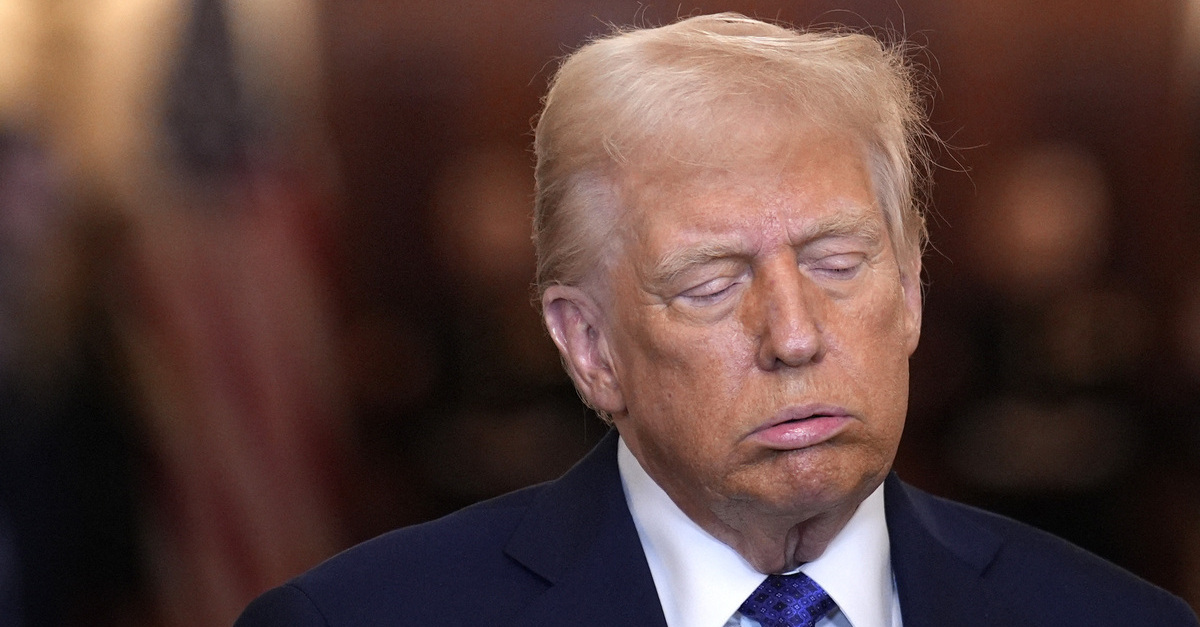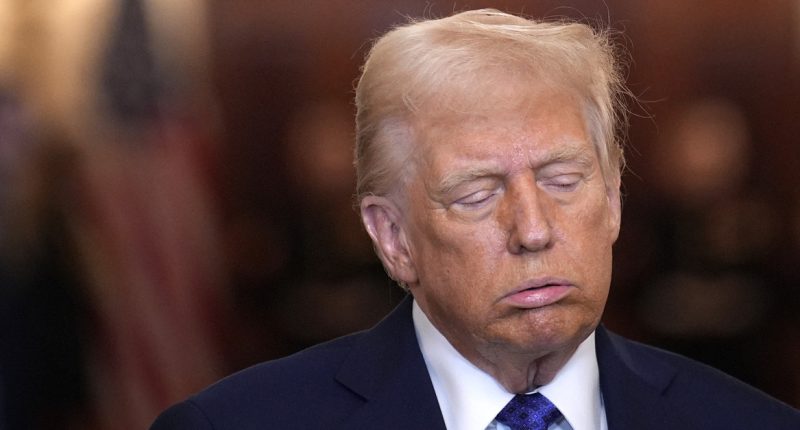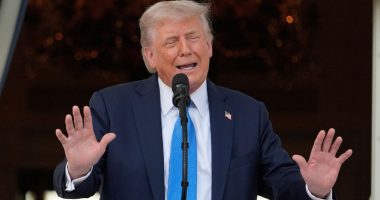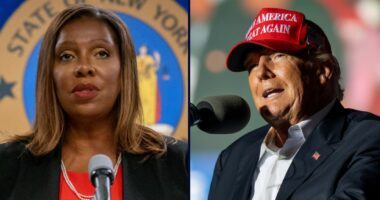
US President Donald Trump arrives before signing the Laken Riley Act into law in the East Room at the White House in Washington on January 29, 2025. The law, named after a Georgia student murdered by an undocumented immigrant is the first bill of the second Trump administration (Yuri Gripas/Abaca/Sipa USA/Sipa via AP Images).
A federal judge on Friday blocked the Trump administration’s plans to make “diversity, equity, and inclusion” (DEI) initiatives illegal.
In late January, the 45th and 47th president signed executive orders which purported to root out DEI from federal government contracts and by barring government contractors with DEI programs of their own. Additionally, Trump directed the U.S. Attorney General to “deter” such “programs or principles” and to consider launching “civil compliance” investigations to effectuate such deterrence.
On Feb. 3, the National Association of Diversity Officers in Higher Education (NADOHE) and several other plaintiffs filed a 42-page lawsuit in Maryland federal court. The group describes itself as an organization that aims to help members “advance equity, inclusion, and the value of belonging within their campus communities.”
In their complaint, the plaintiffs alleged the Trump administration’s anti-DEI directives were unconstitutional for myriad reasons. On Friday, a federal court agreed on at least two counts.
In a 63-page memorandum opinion, U.S. District Judge Adam B. Abelson, a Joe Biden appointee, the court found the anti-DEI directives both “unconstitutionally vague on their face” and in violation of the First Amendment guarantee to freedom of speech.
Under the Fifth Amendment‘s Due Process Clause, a basic principle of constitutional caselaw is that “an enactment is void for vagueness if its prohibitions are not clearly defined,” the judge notes — citing a U.S. Supreme Court case from 1972.
Here, the court determined that the “Termination Provision” of the anti-DEI directive — the provision that intends to broadly impact all existing contracts and any current or would-be contractors — has two major definitional flaws.
“First, the vagueness of the term ‘equity-related’ grants or contracts’ invites arbitrary and discriminatory enforcement,” Abelson writes. “Second, the vagueness of the term offers insufficient notice to current grantees about whether and how they can adapt their conduct to avoid termination of their grants or contracts.”
The court also found Trump’s directive for law enforcement to enforce the anti-DEI crusade through civil compliance investigations vague under the 5th Amendment’s guarantee of due process under the law.
From the opinion, at length:
Defendants have rescinded swaths of existing executive branch guidance on what the executive branch considers the federal civil rights laws to require, prohibit, or allow. Yet neither [executive] Order gives guidance on what the new administration considers to constitute “illegal DEI discrimination and preferences,” or “[p]romoting ‘diversity,’” or “illegal DEI and DEIA policies,” or what types of “DEI programs or principles” the new administration considers “illegal” and is seeking to “deter.” The due process clause of the Fifth Amendment requires that “prohibitions” on conduct be “clearly defined.”
“Vague laws invite arbitrary power,” the opinion goes on — directly quoting Supreme Court Justice Neil Gorsuch.
“Plaintiffs here have shown substantial evidence of the risks of such arbitrariness here,” Abelson continues. “By threatening the ‘private sector’ with enforcement actions, based on those vague, undefined standards, the Enforcement Threat Provision is facially unconstitutional under the due process clause of the Fifth Amendment.”
The court also found several First Amendment violations.
“There is a label for government action that seeks to ‘deter . . . principles,’ that the government disagrees with: ‘restrict[ion]’ of ‘expression because of its message, its ideas, its subject matter, or its content.’ And the most ‘blatant’ and ‘egregious form of content discrimination’ is viewpoint discrimination,” the opinion goes on. “The Certification and Enforcement Threat Provisions squarely, unconstitutionally, ‘abridge the freedom of speech””
Specifically, the court found that the effort to force potential contractors to certify compliance with anti-DEI principles and the threat against private businesses to stop their existing DEI policies in violation of the First Amendment.
Abelson explains, again at length:
The Enforcement Threat Provision applies broadly to the private sector; therefore, unlike with the other provisions, the analysis is based on pure private speech regulated by the First Amendment as opposed to the speech of federal contractors or grantees. Plaintiffs have shown a likelihood of success on the merits of their claim that the Enforcement Threat Provision, which threatens to bring enforcement against perceived violators of undefined standards, is, on its face, an unlawful viewpoint-based restriction on protected speech. The Enforcement Threat Provision expressly focuses on “deter[ring] DEI programs or principles that constitute illegal discrimination or preferences” and “encourag[ing] the private sector to end illegal discrimination and preferences, including DEI,” without, for example, a similar restriction on anti-DEI principles that may also be in violation of existing federal anti-discrimination laws That is textbook viewpoint-based discrimination.
Ultimately, the judge issued a preliminary nationwide injunction against each of the three anti-DEI directives. The court declined, however, to enjoin the Attorney General from preparing a report — as one of Trump’s orders directs her to do.
The injunction will remain in effect pending the resolution of the case itself at the district court level, or, unless the administration is granted and wins a reprieve from a federal court of appeals.








